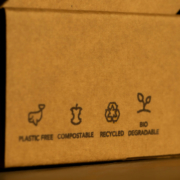Instituto Escolhas and the carbon market
Instituto Escolhas and the carbon market
“Instituto Escolhas identifies the economic, social and environmental costs of public and private projects by through research, studies and analyses on topics such as energy, oceans, forests and urbanization.”
The Instituto Escolhas is a nonprofit civil organization and presents the economic, social, and environmental impacts of public and private decisions on the concept of sustainability.
The association produces studies, analyses, and reports to support new approaches and arguments, enabling solutions to make sustainable development feasible.
“Only qualified arguments can overcome controversial ‘trade-offs’ in the economy and consolidate decisions regarding difficult choices, thus enabling the building of effective solutions for sustainable development.”
Values of Instituto Escolhas
The Institute’s values include boldness, consistency, and independence.
“Boldness. Usage of mathematical language to measure and compare the degree of sustainability of public and private policies, creating innovative scenarios integrated by information cross-checking. Consistency. Developing the capacity to process multiple data with methodological rigor, producing solid arguments, systematic statistics, and comparative charts to help in analyses and conscious choices. Independence. Working through networks with autonomous research, open to diverse perspectives and plural viewpoints, overcoming prejudices and explaining facts and numbers with independence from any ideology.”
The carbon market
The retention and capture by forests of carbon dioxide (CO2) from the atmosphere contribute to climate regulation and climate change mitigation – these are the only services with economic valuation mechanisms in consolidated markets.
Discussions about the regulation of carbon markets are part of the Conferences of the Parties of the United Nations Framework Convention on Climate Change since 1997.
Since then, certification methodologies and carbon credit transaction mechanisms have evolved, but the political consensus necessary to create a global market has not yet been reached.
While a regulated market is not established as a global mechanism, linked to the Nationally Determined Contributions, for mitigating and reducing greenhouse gas (GHG) emissions, carbon markets regulated at the regional (such as the European Union), national (such as China), or subnational levels (like that of California) are being consolidated. In addition, a voluntary market has also emerged, in which companies, individuals, social organizations, and governments can voluntarily generate or buy carbon credits through projects that remove, prevent, or reduce GHG emissions into the atmosphere.
The Forest is ours. Carbon credits and forest concessions


Instituto Escolhas calculated the potential for generating and trading carbon credits produced by REDD+ (Reducing Emissions from Deforestation and forest Degradation) and reforestation projects in Brazilian forest concessions.
“Although Brazil has the largest tropical forest in the world, the country is still lagging behind others like Colombia and Peru in terms of voluntary generation of credits based on forest carbon offsets, with 20 certified REDD+ projects underway and only two of them in public forests (Verra, 2021). The generation of carbon credits in forest concessions can be a pathway to change this scenario.”

The association supported the elaboration of Bill No. 5.518/2020 to foster concessions and diversify sustainable activities. The innovation enables the generation of credits resulting from avoided carbon emissions due to the conservation of natural forests, the so-called REDD+ credits.

Trading carbon credits
The Verified Carbon Standard (VCS) is the main certification standard for the voluntary carbon credit market, which registers and monitors projects that reduce or remove GHG emissions across different sectors. The purpose of certification is to trace credits from their origin to their expiration, guaranteeing the credit’s environmental integrity by ensuring that it is linked to a project that effectively reduced emissions.
“When a registered project proves that it has been able to reduce or remove an amount equivalent to a metric ton of CO2 from the atmosphere, it attains the right to issue a carbon credit.
These credits are purchased by institutions that wish to mitigate their GHG emissions, a practice that is becoming increasingly widespread. A growing number of companies are making commitments to achieve carbon neutrality – the so-called Net Zero – by buying credits to compensate the emissions generated by their operations (Viri, 2021).”



Fashion Label Brasil
The associate Andrea Bogosian created the initiative to balance out the impact of carbon emissions from the brand’s processes and activities through carbon credits of the Moss digital platform.
“In 2020, we committed to becoming a Carbon Friendly company, and by the end of the year, we will have a CO2 offset equivalent to a preserved forest area.”
“Compensation comes from projects that share our values. In partnership with Moss, the company has favored the conservation of the Amazon Forest with the creation of the Fortaleza Ituxi Project, located in one of the most threatened areas of the forest – in the municipality of Lábrea”. “We believe in uniting fashion with awareness and purpose.” Learn more …











